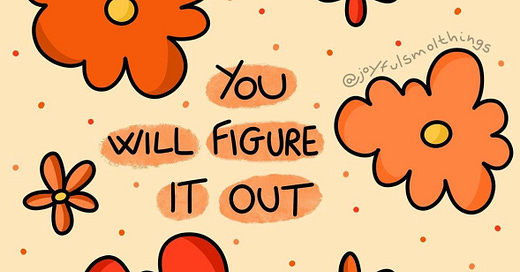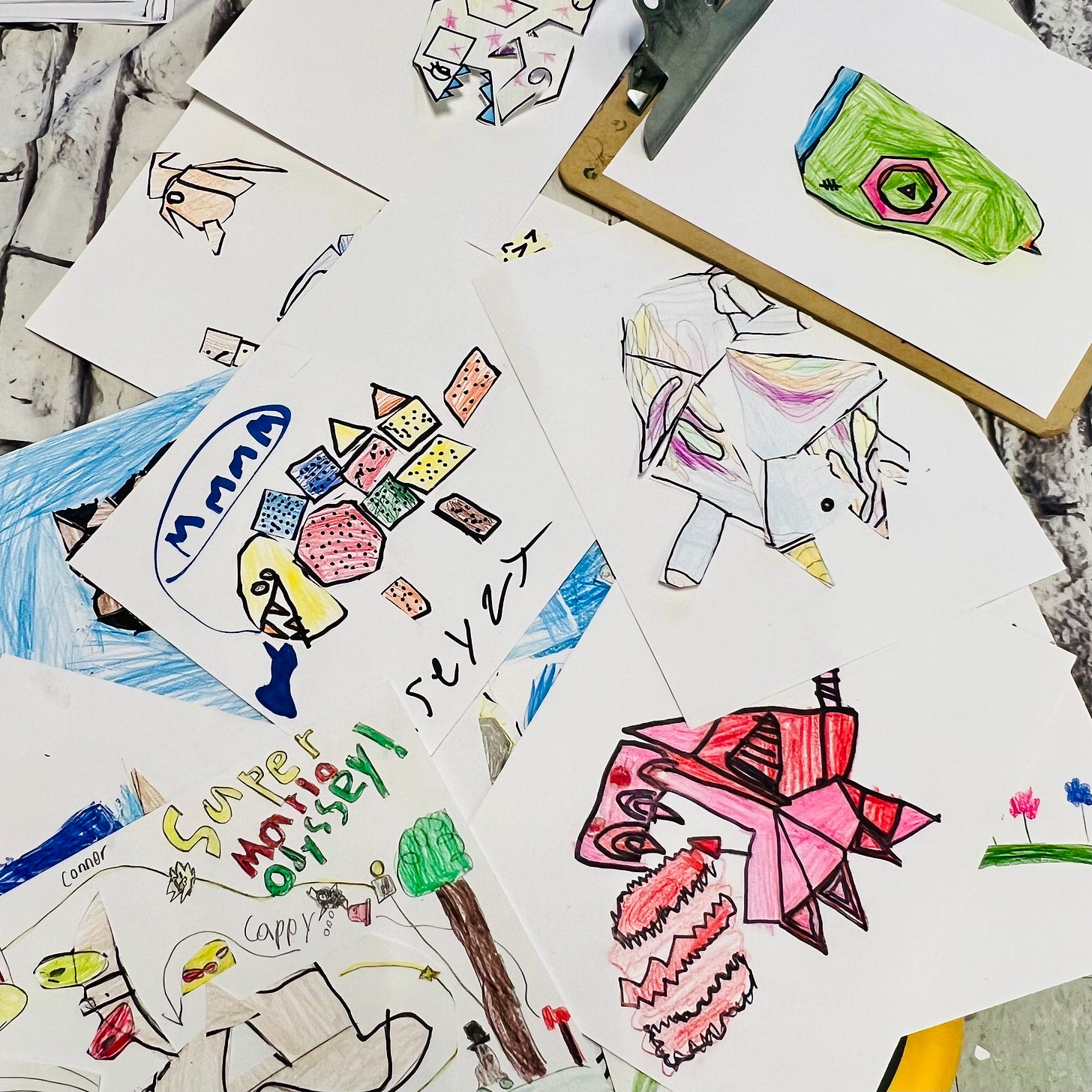Since the day Hazel realized she could put her head under water without sinking, she has loved to swim. Her confidence came on quick—quicker than her stamina, which led to a couple deep-end rescues early on, but we’re well past that now.
When she was finishing kindergarten, her old swim instructor recruited her for the swim team. Swim team? I thought, flashing back to my own childhood, wriggling across the pool lane doing what was supposed to be the butterfly. But she assured me, Hazel was the perfect candidate: she had stamina now. She had strength. And she was one of the oldest in the grade, which meant she could swim with kids in a younger division for longer, and essentially, win.
I thought back to Outliers by Malcolm Gladwell, which I read years ago. He gave this illustration about Canadian youth hockey players who received a leg up based on their birthday cut-offs. The mental comparison made me laugh. I’ve always assumed my future as a stage mom more than I envisioned being a parent to a child athlete, but every day of this life is a new surprise.
She had a great first season. She came in first place a few times and second a lot. She swam multiple events at every meet. She was competitive, as the coach predicted. I knew we were getting into something that really seemed to matter to Hazel, which in turn, mattered to us.
But she also developed these grandiose thoughts. She’d talk constantly about beating team-wide records, which she was pretty far away from. She’d challenge older children to races for no reason. It seemed like she really thought she was the greatest child swimmer to ever grace that pool. I’ve written about Hazel’s confidence before, and my stance remains the same: little girls face an entire society built to tear down their confidence. As her mother, I’ll be damned if I contribute to that. But still, there’s this correlated behavior I have a difficult time with: she doesn’t accept constructive feedback. She’s defensive. She lacks humility. I often find myself asking how, and when, do I draw the line?
She went into this second season expecting more of the same, but she got something different.
This past year, she had to move up to the next age bracket with older kids. More swimmers joined the team. As in any sport, she now has a few teammates who are truly “built different,” meaning, the speed comes naturally to them. They are bodies ahead in every race. Instead of coming in first or second, she was placing third or fourth, and her coach wasn’t selecting her for all her favorite events anymore.
I knew she felt it. We didn’t have to point it out.
Given her typical indignance, I was concerned how this would play out over the course of the season. But her response to this first taste of adversity surprised me. She wasn’t angry. She wasn’t entitled. She just wanted to do better.
Instead of yelling at us or giving up during practice, she asked to swim another day. She requested more practice laps and races in her most difficult strokes. We even had a very honest talk about giving up an activity next year to commit to an additional night in the pool, if that’s what she wants.
Not everything’s supposed to be easy for our kids. Sometimes, they do better when it’s not.
Hazel qualified for the state championships by the skin of her teeth. She competed in one event, where she finished in the middle of the pack.
We sat outside on a bench after the meet. I could tell she was disappointed. But given the growth I’d seen in her character over the season, I felt for the first time we could talk about it. Not just in platitudes of “oh sweetie, you did your best and that’s all that matters,” but really talk about the race. It was a dialogue—not a lecture—met with the maturity of a little person who knows she’s got work to do.
I lost a lot of time worrying about what would be the first thing to humble my daughter. Turns out, it wasn’t a punishment from a teacher or an insult from some boy. She just had to care about something enough to want to improve the outcome rather than pat herself on the back. May this be the first of many times she pulls more lessons from a loss than some engineered win.
If you’re parenting kids of a certain age, you’ve either been there or will be there soon. I want to hear about it: averagejoelle3@gmail.com.
The little things
I got to teach an art appreciation lesson to Hazel’s second grade class. My friend and I taught them about Georges Braque and led a creative project where they drew animals, cut them up and repositioned them on the paper. Our opportunities to visit school are few and far between, so it can be a bit intimidating to stand in front of the class - you never really know what to expect! But the kids were so attentive, sweet, and appreciative. This really warmed my heart.
Also
I wrote:
A new series over on The Joint Account called The Invisible Costs, where we explore hidden price tags that add up in our lives. We started on the topic of childcare, because obviously. Check it out!
I bought:
Another pair of ballet flats for spring, because they’re all the rage and I refuse to continue perpetuating the decades-long lie to myself about the comfort and style Tory Burch flats. This pair from Madewell feel like butter for a fraction of the price. I think the sale brought them down to $83!
Your Wins
Steve (yes, a guy - guys can have wins, too!) made his whole family laugh at his joke. LITTLE WINS ADD UP!






It's so hard to stand on the sidelines of our kids' lives waiting to see what will tear them down. But it's also so exciting to see them respond in ways that surprise and delight us. Love this story, Heather!
I love this! Sounds like your daughter is building a lot of maturity for an elementary school student. (This is coming from a K-5 teacher, I see a lot of them lol!) :)